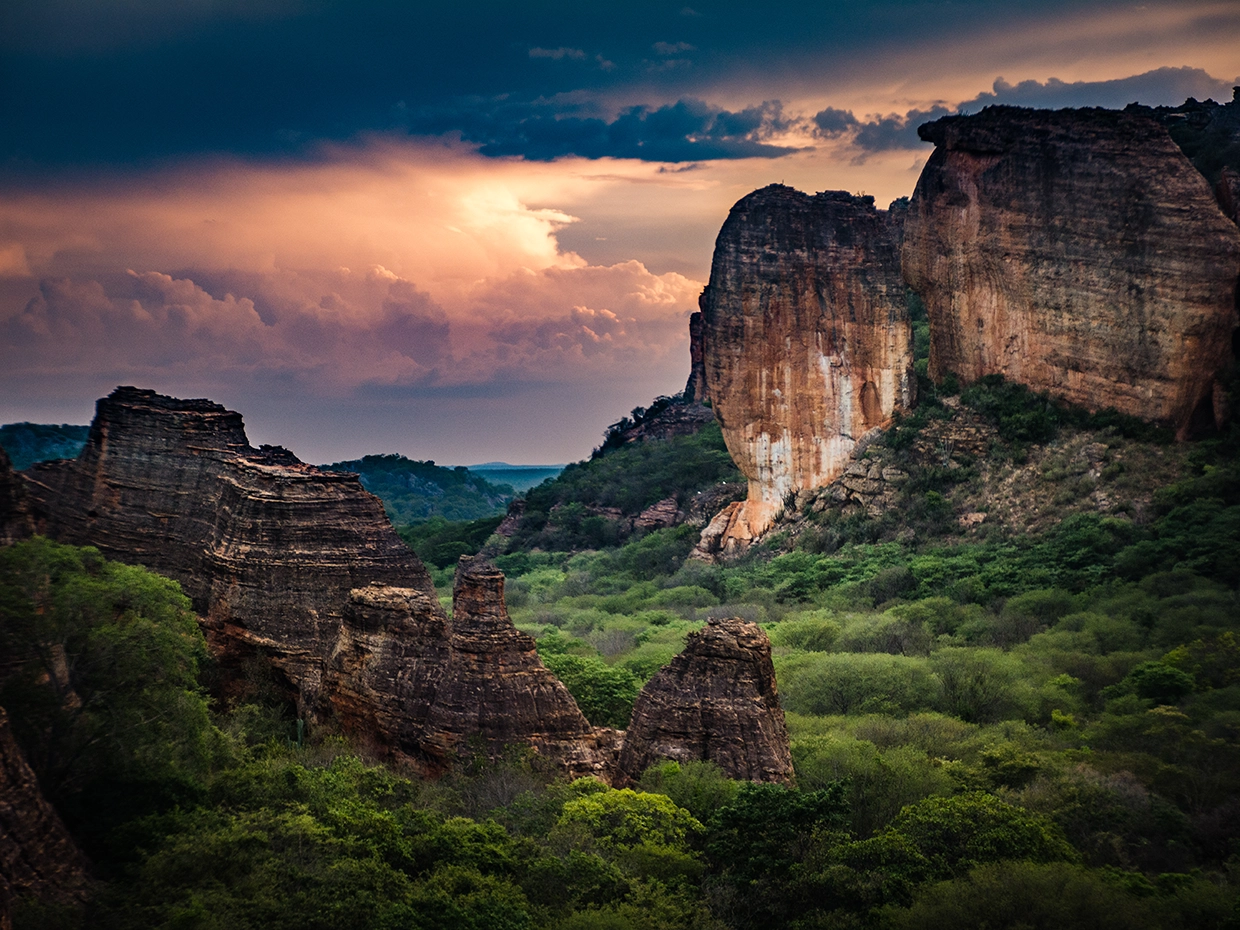The Capybara Mountains National Park is a popular tourist destination in Brazil, especially for those interested in history and archaeology. Here we leave you some things you can do and visit in the park.
What is its importance?
The Capybara Mountains National Park (Serra da Capivara) is a concentration of archaeological sites, with cave paintings and ancient human presence.
Located in the southeast of the State of Piauí (Brazil), in a region with a semi-arid climate, border between two large geological formations: the Maranhão-Piauí sedimentary basin and the peripheral depression of the São Francisco River, its relief is made up of mountain ranges, valleys and plains.
The city of San Raimundo Nonato is the closest urban center, and is home to the Museum of the American Man, where the discoveries of the area are exhibited.
In 1991, UNESCO inscribed the place on the list of Cultural Heritage of Humanity.
São Raimundo Nonato
The Serra da Capivara National Park is located in the state of Piauí, in the northeast of Brazil — a remote and little-visited region. The most commonly used base city is São Raimundo Nonato, which lies about 25 km from the entrance of the park. It’s a modest place but has all the basics (simple hotels, restaurants, banks, etc.).
Recommended accommodations in São Raimundo Nonato:
- Hotel Real (comfortable, simple, well located)
- EcoHotel Serra da Capivara (a bit nicer and more oriented towards tourists visiting the park)
- Pousada Serra da Capivara (budget-friendly, family atmosphere)
There are also more rural accommodations near the park if you prefer a more immersive experience.
Guided tours of the Pedra Furada cave
A cave with rock art sculpted and engraved inside, impressive to visit and observe the landscape from there.
The Pleistocene site of Vale da Pedra Furada (Piauí, Brazil), excavated by the Franco-Brazilian Mission of Piauí since 2011, provides important results on the first human occupations of South America.
The site is known to contain archaeological evidence of human occupation between 40,000 and 5,000 years BP (before present).
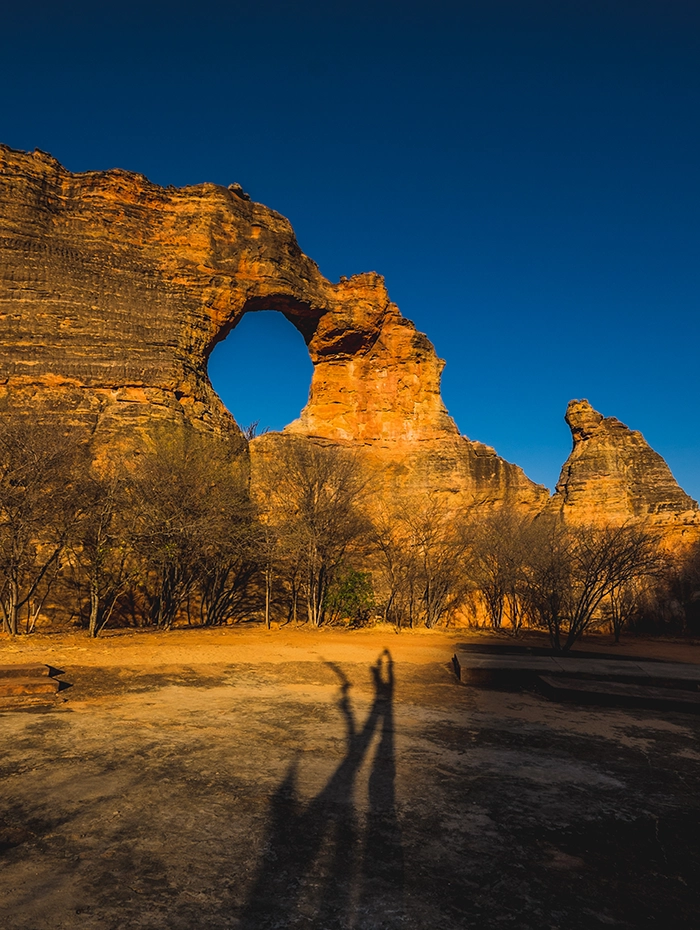
See the cave paintings
The Baixão da Pedra Furada Circuit is a route that you can do in one day and begins at the east entrance of the park, with access via BR-020, passing through the Mocó site, where there are bathrooms, cafes and even camping.
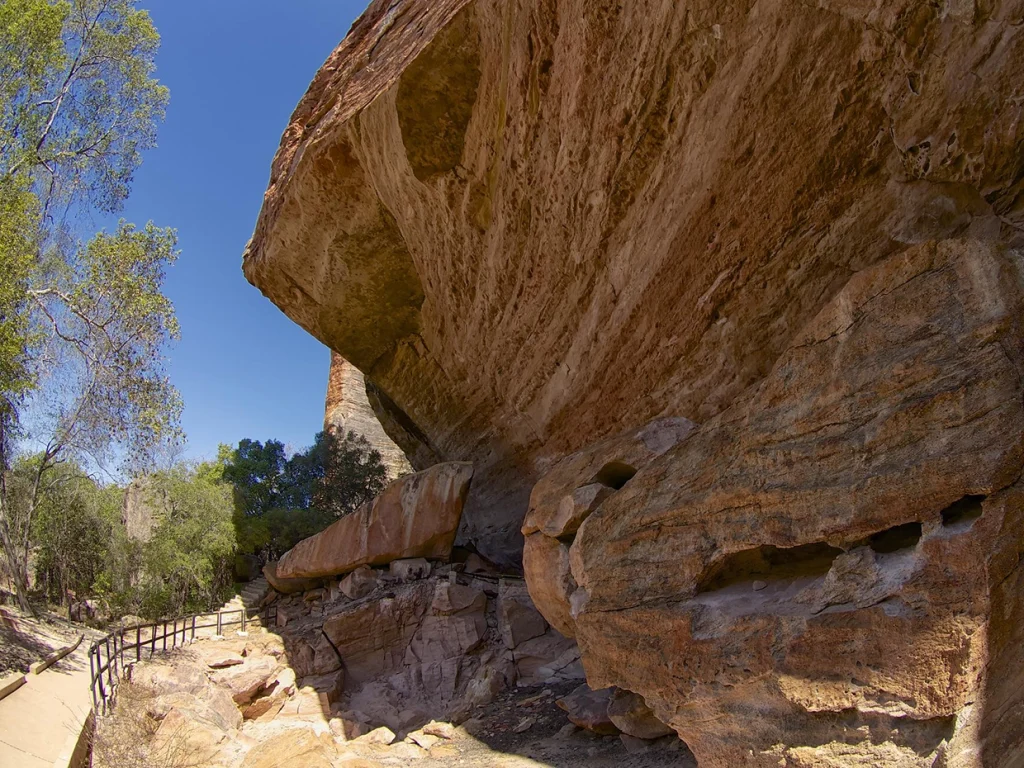
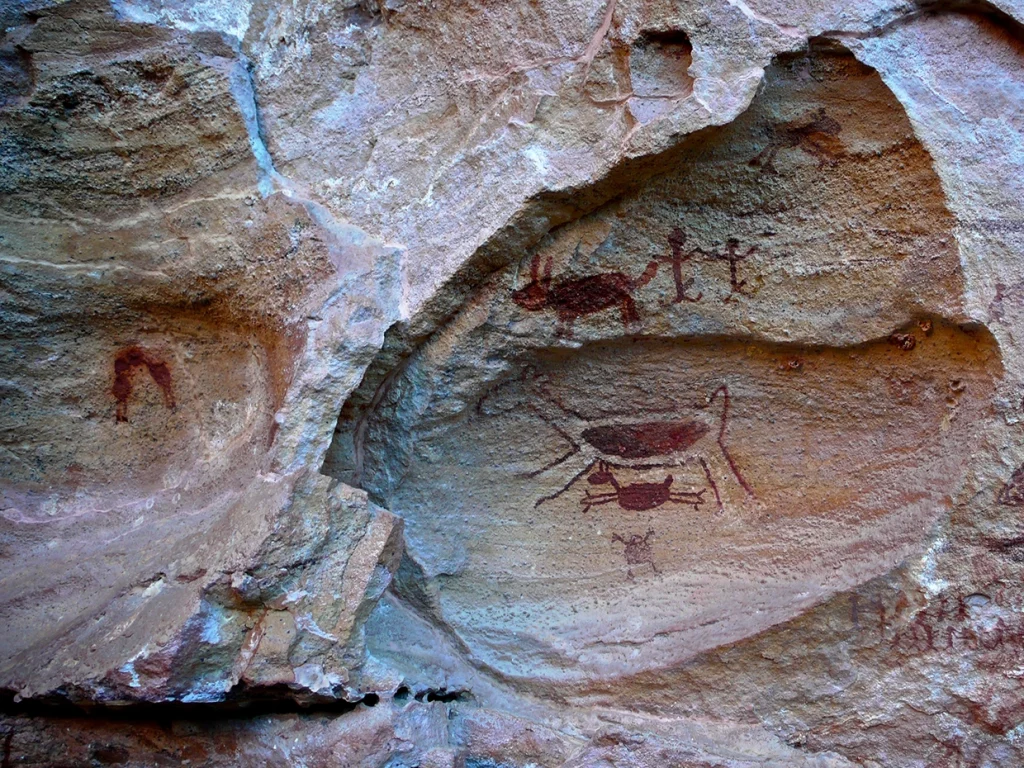

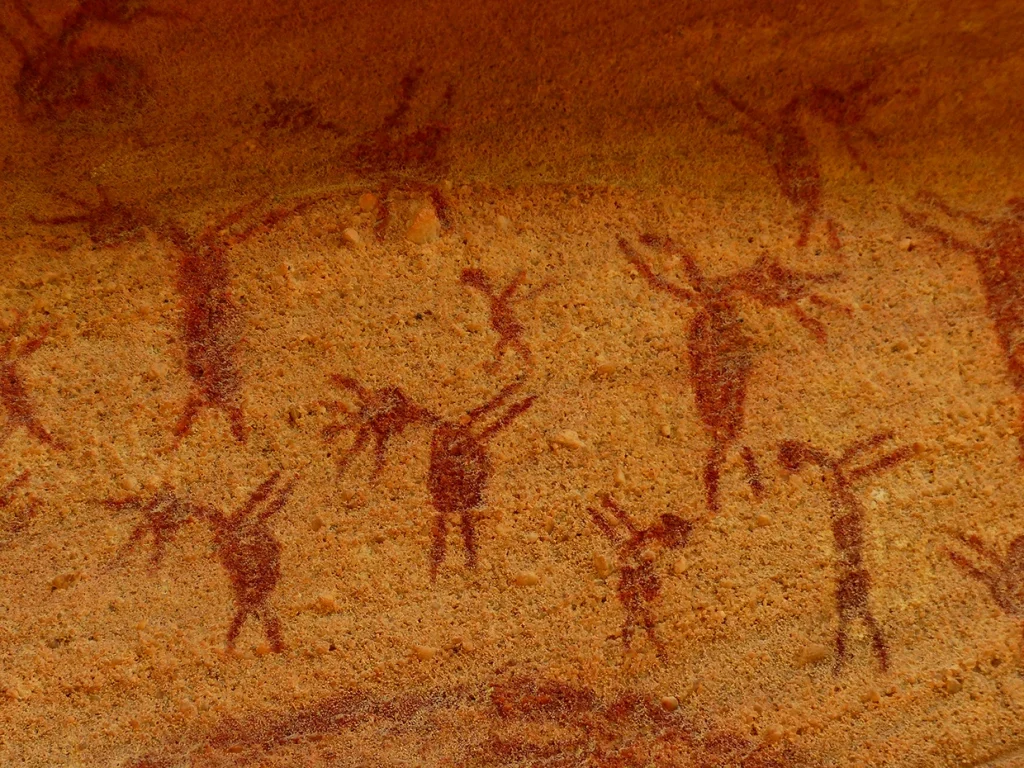
Visit the Museum of the American Man
It is a space for the conservation and dissemination of the prehistoric anthropological heritage of the park and said region. It is located within the headquarters of the Museum of American Man Foundation (FUMDHAM), which is responsible for the museum and created from a cooperation between Brazilian and French scientists who have been working in the region since 1973. There are displays of ancient artifacts and tools, as well as a section dedicated to cave paintings.
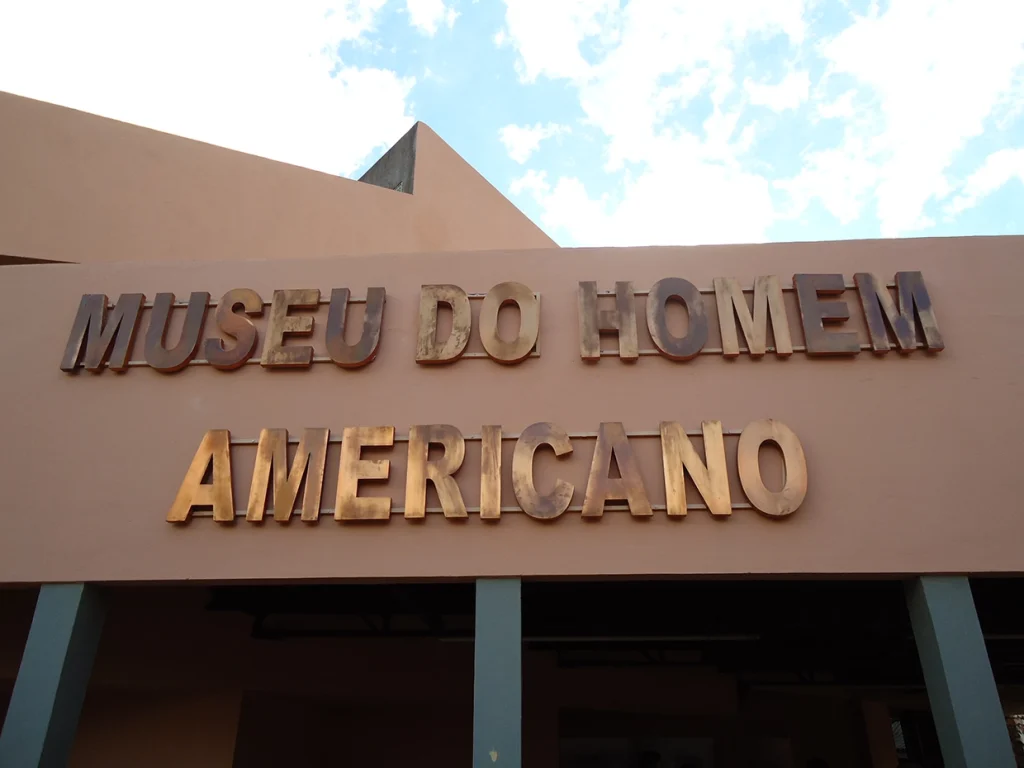
The first Americans
The Vale da Pedra Furada site provides important results on the first human occupations of South America. The discoveries of Monte Verde (Chile, Puerto Montt) and other anthropological sites such as Piedra Museo (Argentina, Santa Cruz), have completely rethought the predominant theory on the settlement of America (late settlement theory) founded on the Clovis Culture, which maintains that humans entered the American continent approximately 13,500 years ago, and have given rise to the new theory of the early settlement of America.
The park has rich biodiversity and is home to many species of animals and plants. If you like photography, the park gives you treasures of nature at every step. In the images that follow: a Surucuá aurora (Trogon curucui), Cat’s Tail Cactus (Cleistocactus winteri).
Observation of fauna and flora
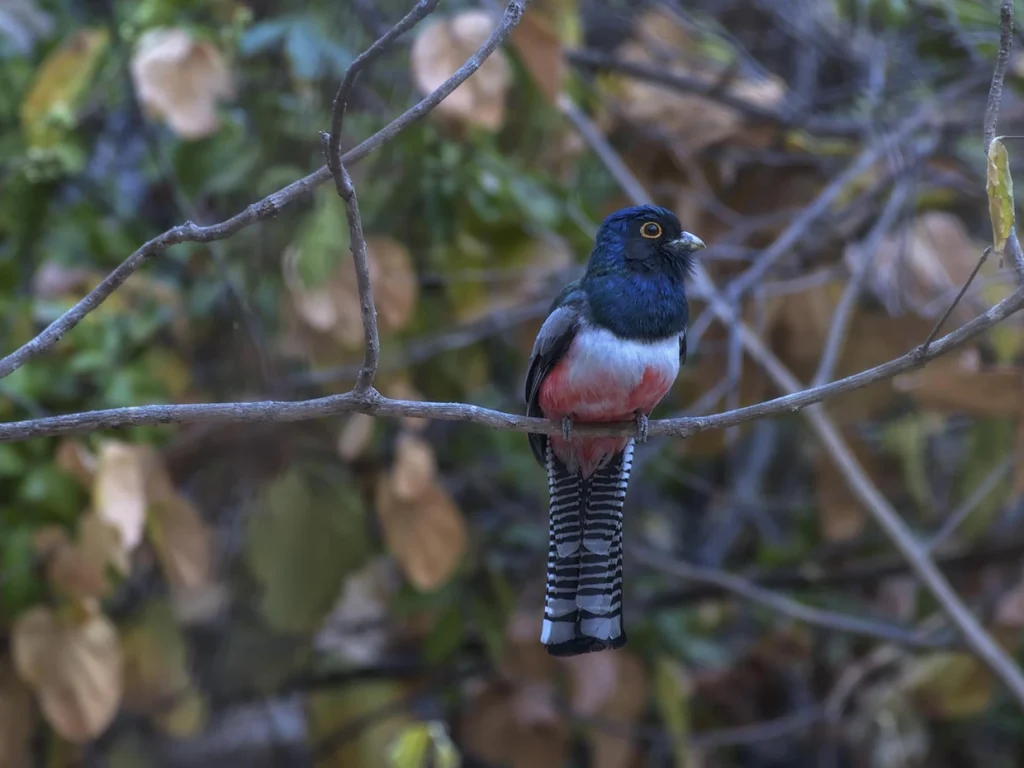
WHY NOT VISIT…?

FAQs

When is the best time to visit Serra da Capivara National Park?
The park can be visited year-round. During the dry season, the days are easier to make the most of (although the sun can intensify the feeling of heat).
The dry season runs from May to October. The rainy season (Brazilian “winter”) typically spans from November to April.
How long should you stay?
I’d recommend a minimum of 4 to 5 days — around 2–3 days to explore the park itself, plus an extra day or two for travel time to and from the area.
Is it worth renting a car?
Yes, especially if you want the freedom to move around independently. The park is spread out, with several archaeological sites located far apart from each other. There are local tours available, but having your own car gives you more flexibility.
How to get there?
Alternative route (if you want to minimize road travel)
There is a small airport in São Raimundo Nonato (NSR), which occasionally offers direct flights from Teresina (the capital of Piauí). However, these flights are not always regular and depend on the time of year.
Domestic flight to Petrolina (PNZ)
From São Paulo or Recife, you can take a flight to Petrolina, the nearest major city — although it’s still about a 5 to 6-hour drive from São Raimundo Nonato.
By road to São Raimundo Nonato
From Petrolina, you can rent a car (recommended if you’re comfortable driving in Brazil) or take a bus (services are less frequent, but they do exist).

The Serra do Capivara National Park is an exciting tourist destination for anyone interested in history and archeology, as well as nature and hiking. Enjoy your visit!


